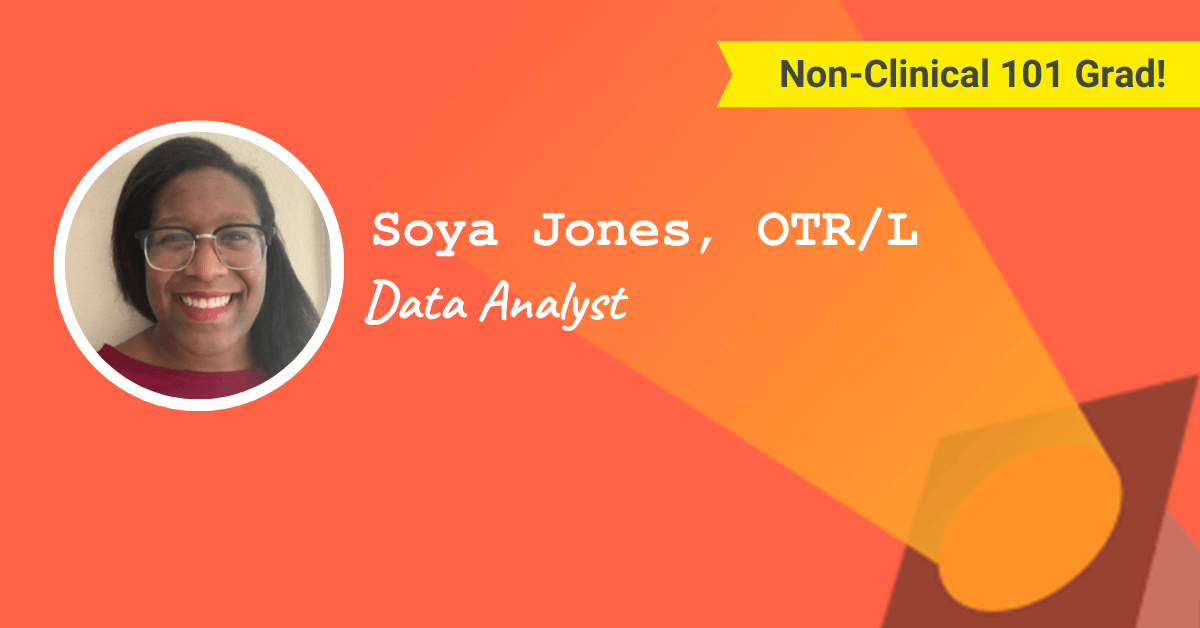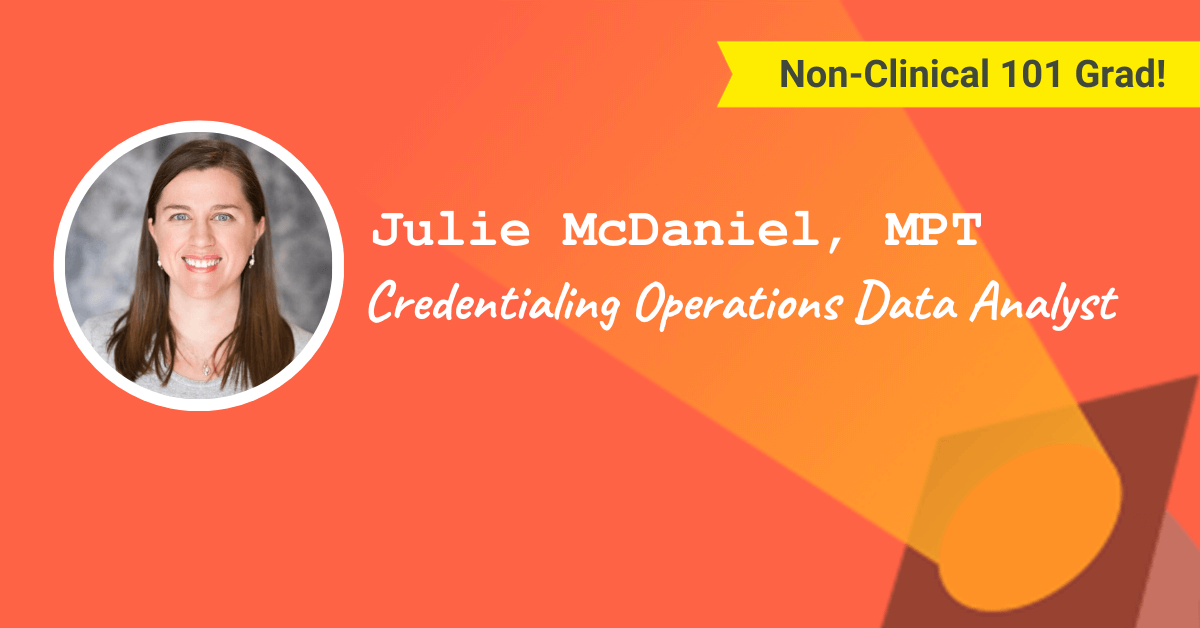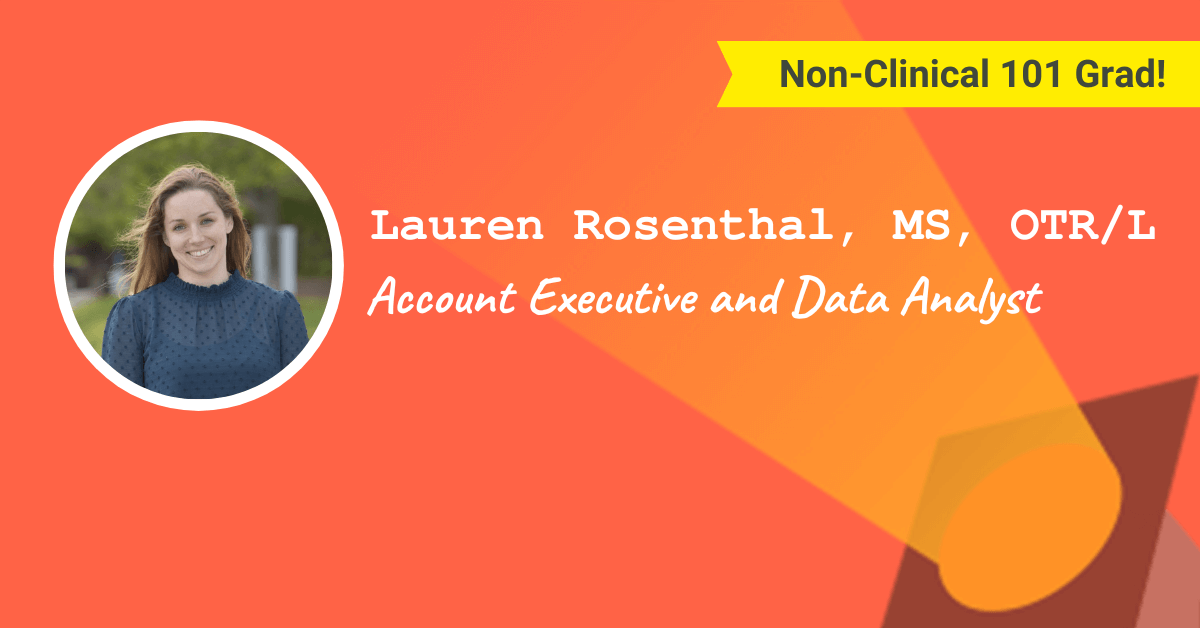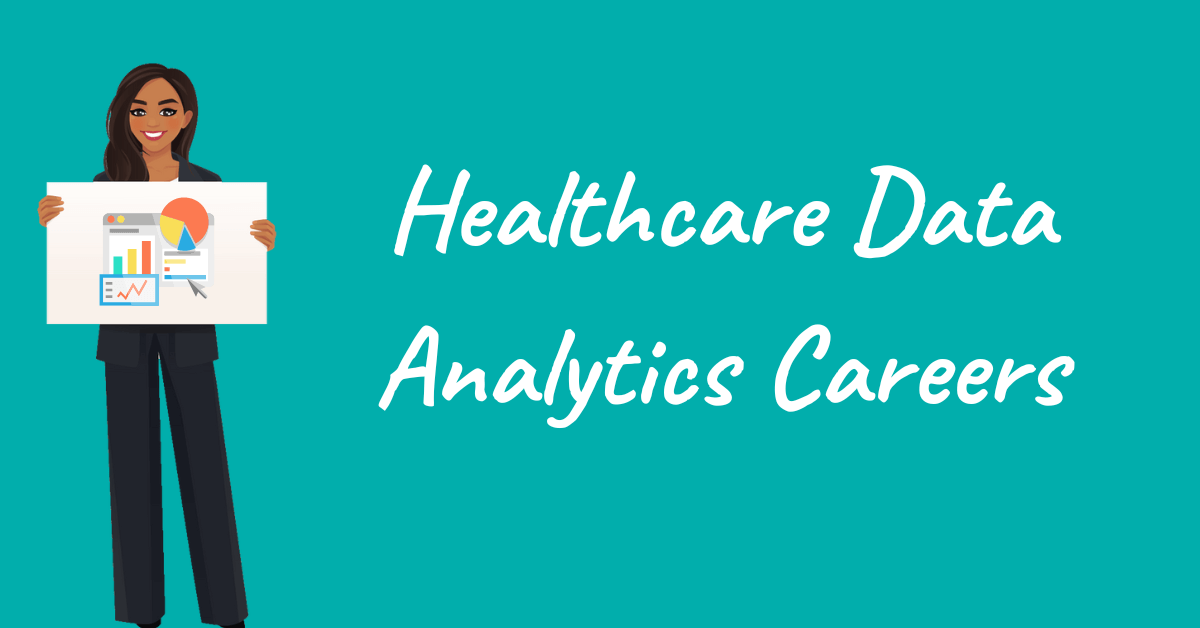Rehab professionals understand the importance of data. We are careful to collect measurements from our patients, and our documentation is designed to show hard data that supports our work. That’s why healthcare data analytics jobs are such a great fit for rehab clinicians!
The data analytics career path is a natural transition for anyone with a PT, OT, or SLP background.
Data analytics is one of the newer non-clinical career paths we have added to Non-Clinical 101. A growing number of clinicians are entering the data world, and there are lots of opportunities within healthcare data analytics for allied health professionals.
We put this article together to share some information about healthcare data analytics, so you can decide whether pursuing this non-clinical career path makes sense for you.
This post may contain affiliate links or codes. This won’t increase your cost, but it helps keep TNCPT alive, and free of annoying ads! Thank you for your support. 🙂
What is healthcare data analytics?
The heart of healthcare data analytics is using information to gain insights.
Such insights are often used to explain things that have already happened, like why a group of patients had certain outcomes. Data-related insights can also be leveraged to predict things that might happen in the future, such as what might happen to patients if another approach to care is used.
As artificial intelligence (AI) enters the healthcare world—and as technology like wearable sensors are used more often in care—we will continue to see even more value placed on collecting and analyzing data. From leveraging EHR information to tracking and studying patients’ biomarkers, there is a bright future ahead for those looking for careers in clinical data analytics.
Just think: your work could help predict future disease outbreaks, determine the most effective treatments for patients, and improve overall efficiency and safety across the healthcare world at large.
What does a healthcare data analyst do?
As we already noted, your job will be to leverage data. Your work might involve managing, analyzing, and/or interpreting data collected by clinicians, healthcare organizations, insurance companies, or other sources. You’ll use this data to improve patient outcomes, reduce spending, and enhance operational efficiency.
A healthcare data analyst is also called any of the following:
- Clinical data analyst
- Clinical analyst
- Healthcare analyst
What type of education is needed to pursue clinical data analyst work?
You’ll generally need a bachelor’s degree to work as a clinical analyst, but not always. If you have an associate’s degree, you still have options in the data field. Generally speaking, if you do not have a bachelor’s degree, you’ll want some sort of formal training or education, like a boot camp, to make you more competitive against candidates who have a BA or BS.
One thing to keep in mind is that data science roles usually do require formal advanced education—or at least a good amount of formal experience. But data analytics jobs are much easier to land with some upskilling and perhaps a boot camp.
Data science vs. data analytics
It’s important to briefly note the difference between data science and data analytics.
A data scientist usually focuses on creating models to predict outcomes and extract insights from complex data sets, while a data analyst concentrates more on collecting, processing, and analyzing data to drive decisions and improve outcomes.
We are focusing on data analytics in this article because it’s an easier clinician transition than going straight into data science.
In any case, boot camps and low-cost upskilling courses are a great way to learn many of the foundational skills for healthcare data analytics roles.
Common skills needed in data analytics roles
- Microsoft Excel
- Python
- SQL
- Power BI
- Tableau
The skills you’ll need to know depend on the role you’re pursuing, which is why we recommend some sort of formal training, whether it’s a boot camp or a full-fledged advanced degree like an MS in data. An additional benefit to formalized training is there’s often a capstone or other type of project that can help you build a portfolio. And a data-related portfolio will be crucial to landing a job in data analytics.
That said, starting with a low-cost upskilling course or two is a great way to get your hands dirty with actual data work, without fully committing to the career. We recommend taking a course or two to see if you even like the work before investing in more advanced education.
What is an average healthcare analytics salary?
On average, you’ll earn around $72,000 per year in healthcare analytics, with a range between $66,000 and $90,000 per year.
That said, you can expect a lot of salary growth and upward mobility in the data space.
Once you move up the ladder into a clinical data manager job, you’ll earn an average of $110,000 per year, and there’s plenty more room to grow over as you hone your skills.
Ultimately, you might even wish to become a healthcare data scientist. These roles are upper level and often require advanced degrees (or at least formal data-related work experience), but the jobs can be quite lucrative, with an average salary of $125,000 per year.
How competitive is the data analytics world?
Competition for non-clinical jobs has increased in general over the past few years. As the medical world struggles with systemic issues like burnout, stagnant pay, and poor debt-to-income ratios, clinicians are looking for other career paths. Who can blame them for wanting to have better work-life balance, higher pay, and a more flexible schedule?
Luckily, all of those perks are common in data analytics roles, as you’ll likely have quite flexible hours, plenty of upward mobility, and the opportunity to work remotely in many cases.
In general, the combination of high earning potential, flexibility, and remote options makes a career path competitive. Data analytics is definitely a hot career path for a reason, which means many of your fellow clinicians are making the same plans to transition into healthcare data work.
The good news is that healthcare is one of the sectors where demand for data analysts is highest. Your unique domain knowledge of healthcare processes and patient care can give you a competitive edge for health data roles!
You might still worry that you’ll struggle to find traction with other clinicians pursuing the same career path. That’s why we created Non-Clinical 101! The course includes an entire lesson on data analytics, and several other career paths in the course cover closely related roles, like value based care, public health, research, and more.
You’ll also access tons of ATS-friendly non-clinical career resume templates ready for you to use, as well as advice on how to network, put together the perfect resume for any job (plus bonus content on leveraging AI to save you time), write compelling cover letters, and outperform the competition in your interviews!
How do I create a healthcare data analyst resume?
Any non-clinical resume you create should reflect your existing experience, while staying focused on the transferable skills you’ll need to do the new role.
Your resume should play up your use of data in any of your roles, whether you collected it, analyzed it, or leveraged it to gain insights or make predictions.
Your use of electronic medical records (EMRs) will also set you apart from competition when you apply for healthcare data analyst roles at healthcare tech companies.
We also have several ATS-friendly healthcare data analyst resume templates in Non-Clinical 101. We were lucky to work with Non-Clinical 101 graduate and data analyst, Lauren Rosenthal, to put together our content on data analytics, including a bonus interview where Lauren details exactly what she did to land her job in data!
What are some examples of healthcare analysts?
Here are some great spotlights on three non-clinical rockstars who are making waves as data analysts!



All three of these women took our Non-Clinical 101 course. If you enroll in NC101, you can access content we created to help you enter the data world, and a lot more. As a student, you can also network with them in our private alumni groups!
And if that’s not enough, we also have a bonus lesson in the course that teaches you how to leverage AI to save you time and further improve your resumes!
How do I get started in a health analytics career?
The next step for you is to make sure this is really the right move for you! We recommend taking some low-cost upskilling courses to see if you enjoy the type of work you’d do in this role. You can also read up on others who have pursued data, like the women we listed above. If you’re able to job shadow, that can also be helpful.
If you’re sure you want to enter the data analytics world, we recommend considering a reputable bootcamp or even an advanced degree.
We also highly recommend gaining hands-on experience in data analytics. This could be through internships, volunteering, or project work.
Project work can be as simple as a personal data analytics project. Find some data that you think would be interesting to analyze, and have some fun learning how to analyze and visualize it! You’ll often learn more, faster, by working with data that excites you, or is meaningful to you.
Explore other non-clinical pathways
Before you commit to a bootcamp or advanced degree, you’ll want to make sure this is the right career path for you! Similar non-clinical healthcare career paths to data include value based care, population and public health, leadership and operations, and even research.
Data analytics is just one of many non-clinical career paths you can take. It’s important to take stock of yourself, including your innate strengths and passions, as well as your life and career goals.
If you’d like to learn more about these career paths—and take self-discovery assessments to see if they’re a good personality match for you—we recommend exploring Non-Clinical 101: The Complete Guide to Launching Your Non-Clinical Career.





